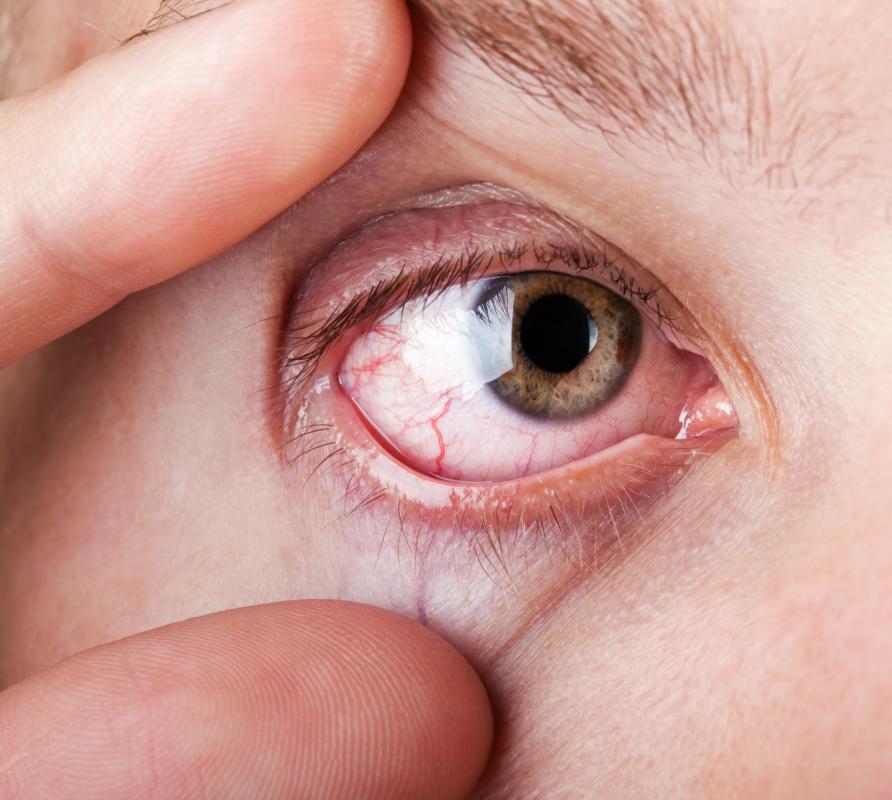At TheHealthBoard, we're committed to delivering accurate, trustworthy information. Our expert-authored content is rigorously fact-checked and sourced from credible authorities. Discover how we uphold the highest standards in providing you with reliable knowledge.
What Is an Ocular Lubricant?
An ocular lubricant is a liquid medical product designed to replenish eye moisture. Lubricants usually mimic tears in their composition and typically come in droppers for easy application. They are frequently recommended by medical professionals for people suffering from dry eyes or allergic irritation of the eye. Lubricating the eyeball with synthetic moisturizers is one of the most common ways of alleviating dryness and redness.
There are two primary categories of ocular lubricant: over-the-counter and prescription. Over-the-counter lubricants are often sold simply as “eye drops,” and are designed to relieve temporary eye dryness or discomfort. People suffering from ongoing eye conditions usually need more powerful lubricant products that can actually cure, not just treat, the problem. Most pharmaceutical, prescription cures contain medication as well as moisture.

Healthy eyes will usually lubricate themselves with tears. Allergies, arid conditions, or extended exposure to dry or salty environments — going on a run through a windy desert, say, or spending extended time at the coast or on board a ship — can cause tears to temporarily dry up. Basic over-the-counter ocular lubricants are usually all that is needed to provide instant relief in these situations.

Most eye drops are little more than saline solutions. When dropped into the eyeball, the body accepts them as it would tears. Often times, the presence of added moisture is all an eye needs to gets its own tear production back up and running. Athletes, allergy sufferers, or those who constantly transition from moist to dry environments often carry a small bottle of ocular lubricant with them to use as needed.

There are very few risks associated with most over-the-counter ocular lubricant products. The most common ocular lubricant side effects include stinging and burning of the eye, but this will usually pass quickly if flushed with water. Risks and adverse effects are more commonly associated with prescription-based pharmaceutical drugs.
People who find themselves constantly reaching for their eye drops often find that their eyes need more than just occasional added moisture. Basic products are usually designed to be but temporary fixes, and extended ocular lubricant use is normally discouraged. Continued need for moisture is often a symptom of a more serious problem.

Prescription ocular lubricants typically have a saline base, but that base is used as a vehicle for delivering some sort of eye medication. Lubricants are some of the most effective ways of getting a range of different drugs directly into the eyeball. Chronic dry eye syndrome and severe allergies are two of the most common conditions requiring prescription eye drops, but some degenerative vision diseases and bacterial infections can also be treated this way.
AS FEATURED ON:
AS FEATURED ON:















Discuss this Article
Post your comments